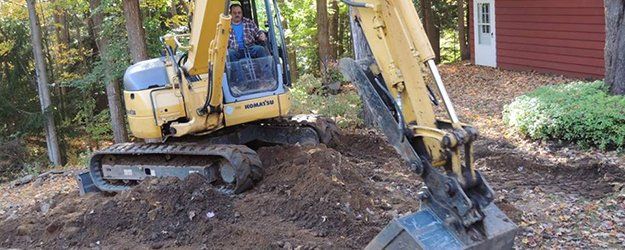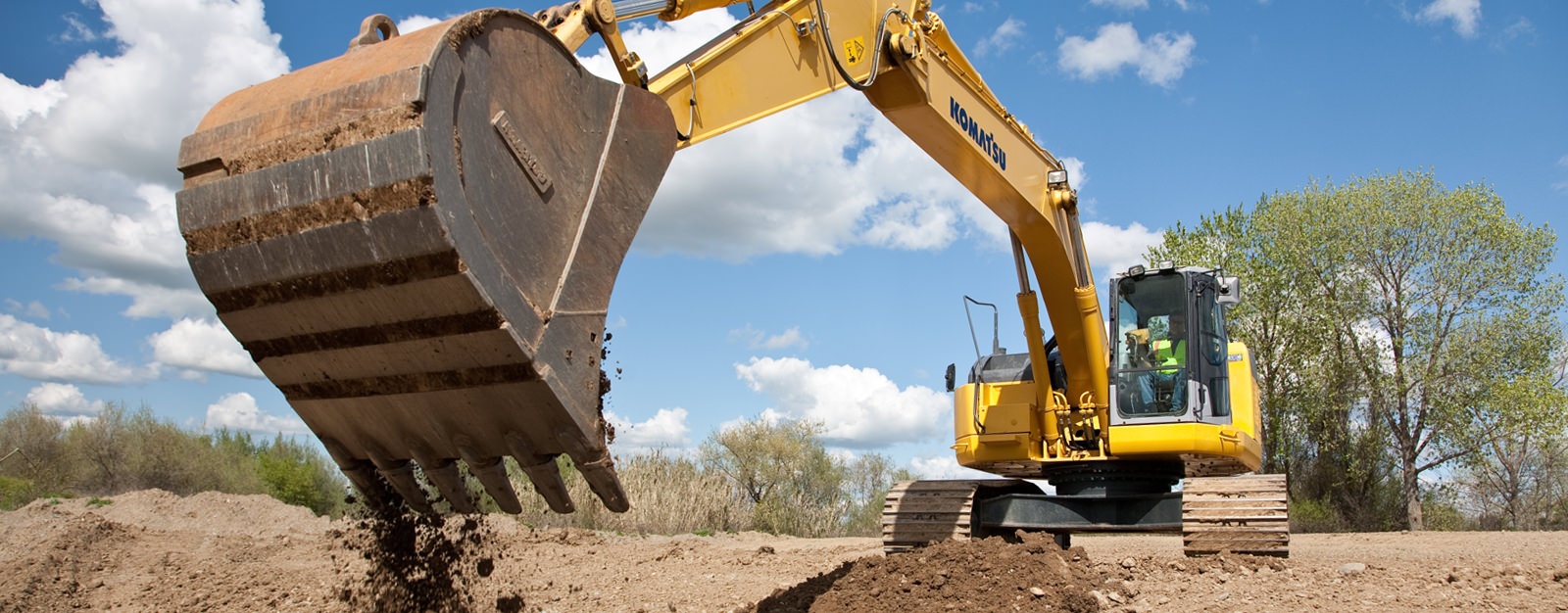Inexpensive Lancaster Excavation - Top Quality Excavation at Competitive Costs
Inexpensive Lancaster Excavation - Top Quality Excavation at Competitive Costs
Blog Article
Comprehensive Excavation Techniques: Mastering the Basics for Success
The careful planning, specific implementation, and thorough attention to detail required in excavation projects require an extensive approach that encompasses different basic aspects. The real proficiency lies not merely in recognizing these principles yet in effortlessly incorporating them to browse the complexities of excavation projects with finesse.
Comprehending Excavation Task Planning

Successful excavation jobs are improved the foundation of careful and extensive preparation. The initial stage of any excavation task is the drawing board, where essential decisions are made that can dramatically affect the end result of the project. During this phase, it is necessary to collect all pertinent info regarding the site, including topographical surveys, soil make-up, and any prospective dangers that might exist. Understanding the task budget plan, timeline, and scope restrictions is important for creating a comprehensive excavation plan that makes sure the project's success.
One key facet of excavation job planning is the advancement of a comprehensive timeline that lays out the series of tasks, deadlines, and landmarks. This timeline offers as a roadmap for the task group, enabling them to track progression and make required changes to make sure the project remains on schedule. In addition, a well-defined budget plan that represents all expenses, consisting of tools leasing, labor expenses, and materials, is important for preventing cost overruns and delays. By carefully thinking about all these variables during the planning phase, excavation projects can be executed effectively and effectively, resulting in effective results.
Soil Analysis and Site Analysis
Carrying out extensive dirt evaluation and site examination is a vital action in the prep work stage of any kind of excavation project. Dirt evaluation involves figuring out the structure, framework, and properties of the dirt at the excavation site. This details is crucial for comprehending the soil's bearing capability, moisture content, and capacity for erosion, which are crucial variables in figuring out the excavation methods and tools needed for the task.
Site assessment surpasses soil evaluation and incorporates a broader evaluation of the total site conditions. This evaluation consists of determining any possible threats, such as below ground energies, environmental concerns, or unpredictable surface, that might affect the excavation procedure. By thoroughly evaluating the website, project supervisors can create reliable excavation approaches that focus on safety, performance, and environmental management.
Making use of sophisticated modern technologies like ground-penetrating radar, dirt sampling, and drone studies can improve the precision and effectiveness of dirt analysis and website assessment. Investing time and resources in these initial actions can inevitably conserve time and avoid expensive hold-ups or issues during the excavation process.
Equipment Selection and Use
Reliable excavation projects depend heavily on tactical devices choice and utilization to make certain ideal efficiency and efficiency. Picking the right tools for the work is crucial in maximizing effectiveness and decreasing downtime. Factors such as the type of dirt, depth of excavation, and job range play a substantial duty in establishing one of the most appropriate tools for the job available.

Along with selecting the proper tools, proper utilization is crucial to project success. Operators must be trained to handle the tools securely and efficiently - septic ohio. Routine maintenance checks and timely fixings assist avoid malfunctions and ensure constant performance throughout the job
Precaution and Rules Conformity
In the realm of excavation projects, prioritizing precaution and compliance with policies is vital to guaranteeing a safe and legitimately audio functional setting. Security actions incorporate a range of practices, consisting of performing thorough website evaluations, carrying out correct signage and barriers, and supplying sufficient security training for all employees included in the excavation process. Adherence to policies, such as OSHA needs in the United States, makes certain that the excavation job meets the necessary criteria to shield employees, bystanders, and the surrounding atmosphere.

Monitoring Progression and Adjusting Strategies
Just how can forecast managers properly track the development of excavation tasks and adjust their strategies appropriately to maximize results? Surveillance progression is important for making sure that excavation projects stay on track and fulfill target dates. Task managers can use different tools and strategies to track development, such as day-to-day report card, routine site inspections, and advanced surveillance technologies like drones check my source and GPS tracking systems. By continually keeping an eye on the project's innovation, supervisors can determine any type of possible hold-ups or problems early and take positive actions to resolve them.

Verdict
Finally, mastering the fundamentals of comprehensive excavation approaches is vital for the success of any kind of task. By comprehending project planning, assessing soil and website conditions, picking proper devices, following safety and security regulations, and checking progress, job managers can make sure a reliable and smooth excavation process. Executing these techniques will lead to successful end results and decrease prospective dangers or obstacles throughout the excavation project.
The preliminary phase of any kind of excavation job is the planning stage, where crucial decisions are made that can dramatically affect the end result of the task. Comprehending the project range, budget, and timeline constraints is critical for developing a thorough excavation strategy that makes sure the task's success.
Just how can project supervisors effectively track the advancement of excavation tasks and adjust their approaches accordingly to enhance outcomes? By carefully keeping an eye on progression and being prepared to adapt methods, project supervisors can enhance the total success of excavation tasks.
By understanding project preparation, analyzing soil and website conditions, selecting proper devices, conforming with safety and security laws, and monitoring development, task supervisors can make certain a smooth and efficient excavation procedure.
Report this page